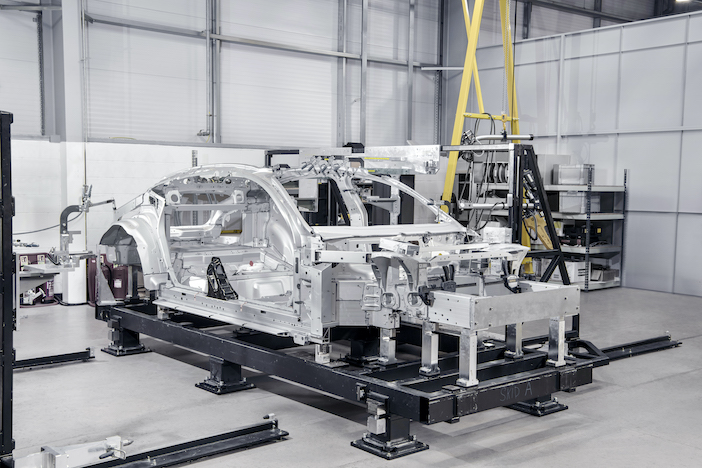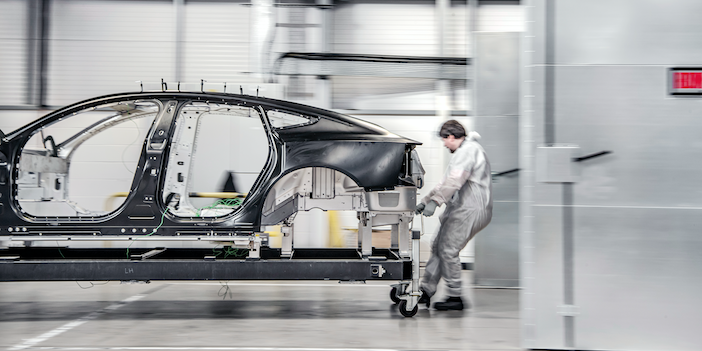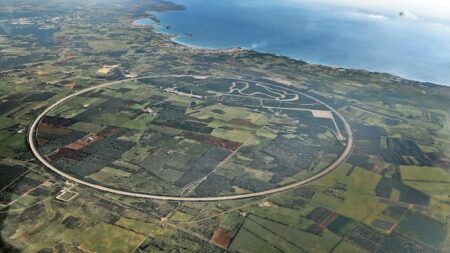Polestar has confirmed that the Polestar 5, its forthcoming performance electric four-door GT, will feature a brand-new, bespoke, bonded aluminium platform. Bonded aluminium is a lightweight and rigid option, but has often be found to be labour-intensive and difficult to use in mass-production vehicles without sacrificing quality – but Polestar has solved the issue.
Polestar’s team of 280 engineers, most from Formula 1, low volume and bespoke sports car backgrounds, have been working in UK’s ‘Motorsport Valley’ in the Midlands, developing an entirely new, faster manufacturing process that develops both body and platform in unison.
The team say that the new materials and techniques involved in the process mean the body-in-white (completed platform and body) is expected to weigh less than that of cars in smaller segments, while still delivering leading safety levels. The bonded aluminium platform will also help drive faster product introduction, high quality and platform rigidity.
“Our UK R&D team is one of Polestar’s greatest assets,” said Thomas Ingenlath, CEO of Polestar. “Their mix of engineering and technological expertise enables us to develop advanced, lightweight sports car technology with a creative mindset and a spirit that embraces innovative engineering. This will set Polestar apart in the years to come.”

By further developing this technology for Polestar’s first in-house platform, the Polestar 5 is being designed with torsional rigidity claimed to be superior to that of a traditional two-seat sports- or supercar. The decision to develop a bespoke platform has also enabled the brand to deliver a production model that remains true to the Precept concept car that inspired it.
“We knew we wanted this car to be lightweight, we knew we wanted high quality and we knew we wanted it quickly,” added Pete Allen, head of UK R&D at Polestar. “This architecture delivers outstanding dynamic and safety attributes, with low investment technology applicable to high production volumes.”
The development programme for Polestar 5 is continuing at pace, with global efforts led by a growing UK R&D unit, which is expected to grow to around 500 engineers in the coming months.





